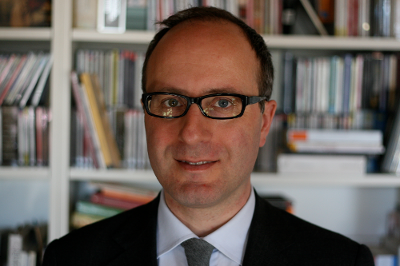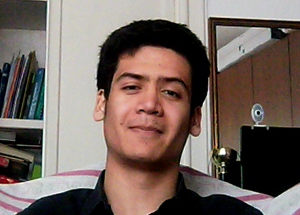

Gli effetti della rivoluzione digitale – che alcuni paragonano, per le conseguenze che sta causando, all'invenzione della scrittura – sono profondi e duraturi e spaziano dall'economia alla cultura, dalla politica alla vita di tutti i giorni. Per provare a capire una rivoluzione di tale portata, per individuarne la struttura profonda e per intuirne le direzioni future, le competenze tecnologiche devono venir integrate da selezionati elementi giuridici, economici e sociali, con un approccio fortemente multidisciplinare.
L'obiettivo di questo corso è quello di contribuire alla formazione di individui digitali (futuri ingegneri) competenti e consapevoli. Per raggiungere tale obiettivo da una parte si offriranno le conoscenze multidisciplinari (tecniche, giuridiche, eccetera) necessarie a capire la rivoluzione digitale e dall'altra si indurrà l'acquisizione di abilità specifiche relative al mondo online per mezzo della creazione di blog da parte degli studenti. A fine corso gli studenti avranno, quindi, non solo compreso i motivi che rendono il digitale una discontinuità profonda rispetto al passato a diversi livelli, con relativi problemi ed opportunità, ma anche acquisito le competenze per sviluppare una propria presenza online consapevole ed avanzata.
Per maggiori informazioni sulla struttura del corso, fare riferimento alle sezioni relative al programma e alle regole, nonchè al portale della didattica.

Juan Carlos De Martin is co-founder and faculty co-director of the Nexa Center for Internet & Society at the Politecnico of Torino, Italy. He is also Faculty Fellow at Harvard University Berkman Center for Internet & Society and a Senior Visiting Researcher at the Internet and Society Laboratory of Keio University (Tokyo).
A computer engineering professor with research interests focusing on digital media processing and transmission, he has been broadening the scope of his attention to the more general theme of the interaction between digital technologies and society. His most recent main interest is the future of university in the Internet age, a topic on which he is writing a book. In 2012 he published, together with co-editor Melanie Dulong de Rosnay, "The Digital Public Domain: Foundations for an Open Culture", (OpenBookPublishers, UK).
In 2003 he co-founded, with law professor Marco Ricolfi, Creative Commons Italy, which he led between 2005 and the end of 2012. Between 2007 and 2011 Juan Carlos De Martin was the coordinator of COMMUNIA, the European thematic network on the digital public domain. Since 2007 he is President of the libraries of the Politecnico di Torino.
Before returning to Italy in 1998, Juan Carlos De Martin was a visiting researcher at the University of California at Santa Barbara for two years and, after receiving his Ph.D. in Telecommunications from the Politecnico di Torino, he worked for two years at Texas Instruments in Dallas, Texas.
Since Spring 2012 Juan Carlos has been teaching a new course on the digital revolution to first-year students at the Politecnico di Torino. Juan Carlos De Martin also serves as member of the Scientific Board of the Institute of the Italian Encyclopedia Treccani and of the Biennale Democrazia. He is a frequent op-ed contributor to "La Stampa", one of the Italian leading newspapers, and he often acts as a commentator in European media.
Juan Carlos De Martin is a member of the Institute of Electrical and Electronic Engineers (IEEE) and is the author, or co-author, of over 100 peer-reviewed conference papers, journal papers and book chapters.


Lorenzo Canova holds a MSc in Industrial engineering from Politecnico di Torino and is a research fellow of the Nexa Center for Internet & Society since November 2014. He first got in touch with the Nexa Center in January 2014 while working on his Master thesis on Open Government Data quality, then he received a scholarship from Nexa Center in June 2014 for carrying on his studies in the field of Italian Public Sector Information. His main research interests are in Open Governement Data, governments transparency and linked data. He is currently involved in the Share-PSI2.0 project and working on other projects regarding the publication of Open Government Data.

Elena Beretta received the M.Sc. in Cooperation, Development and Innovation in Global Economy from University of Turin (Department of Economics and Statistics "Cognetti de Martiis") in September 2016; she worked on an experimental thesis investigating the diffusion of innovation by agent-based models, under the supervision of Professor Magda Fontana, and Professor Marco Guerzoni as assistant supervisor. She earned a second level Master degree in Data Science for Complex Economic Systems at the Collegio Carlo Alberto in Moncalieri (TO), in June 2017. From April 2017 to September 2017 she got involved in an internship at DESPINA - Laboratory on Big Data Analytics at the Department of Economics and Statistics of the University Study of Turin – working on the NoVELOG project ("New Cooperative Business Models and Guidance for Sustainable City Logistics"). In November 2017 she’s starting to collaborate as PhD student, and effective member, with Nexa Center for Internet & Society at Politenico of Turin, by working on a project on Data and Algorithms Ethics under the supervision of Professor Juan Carlos De Martin.

